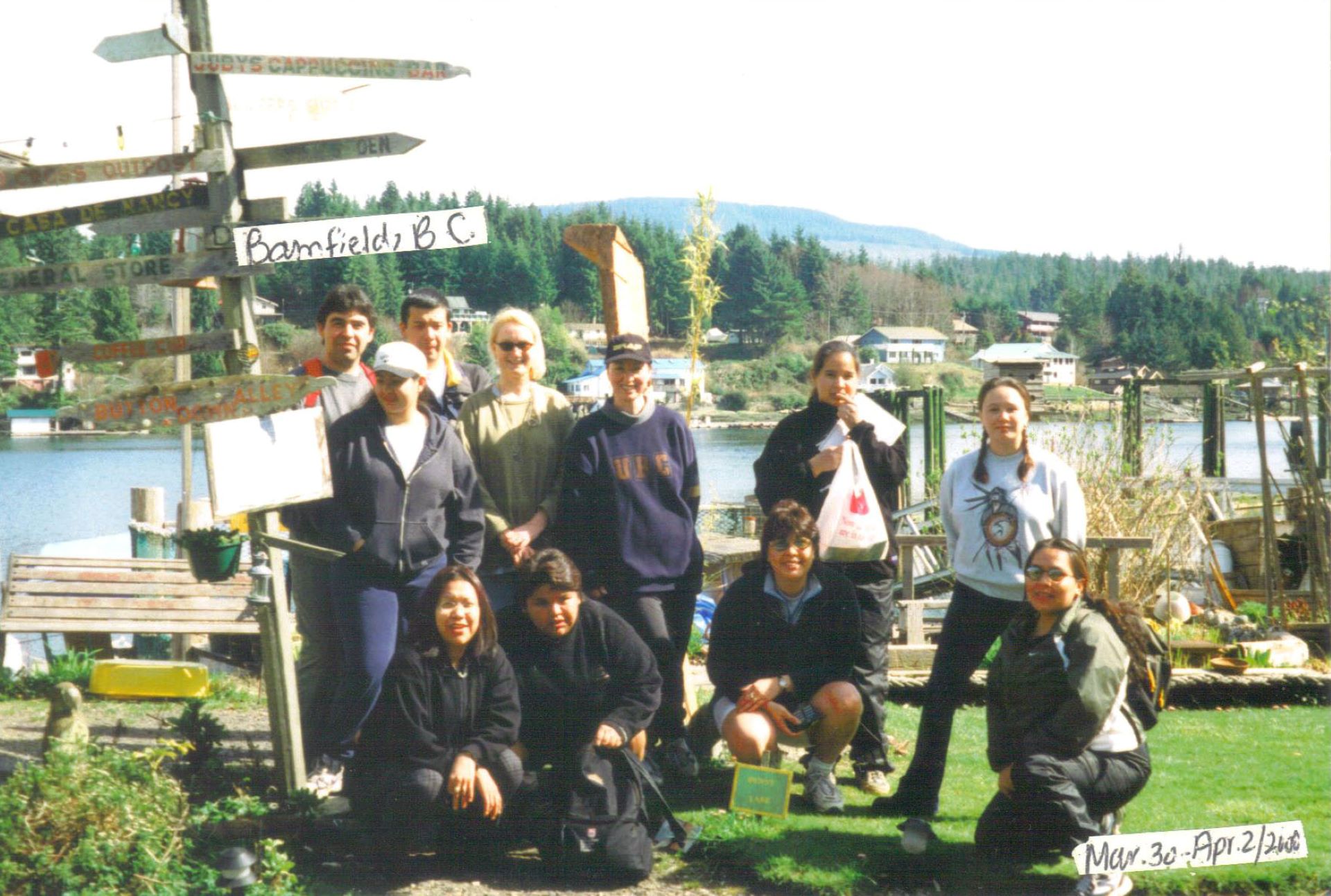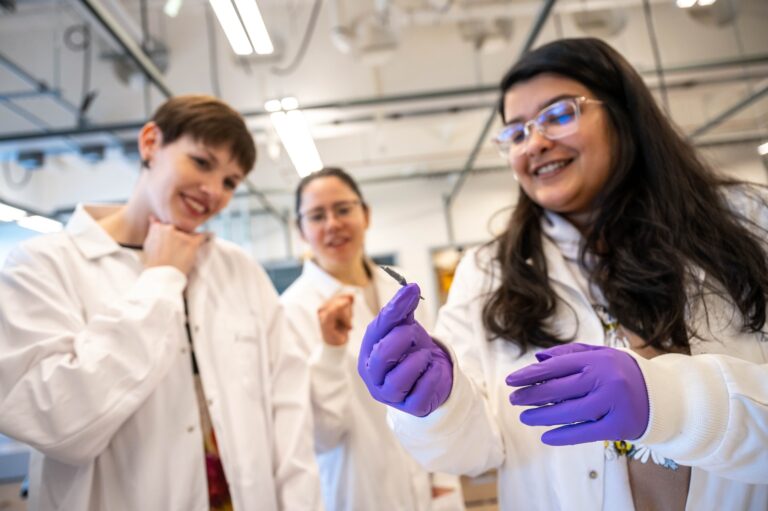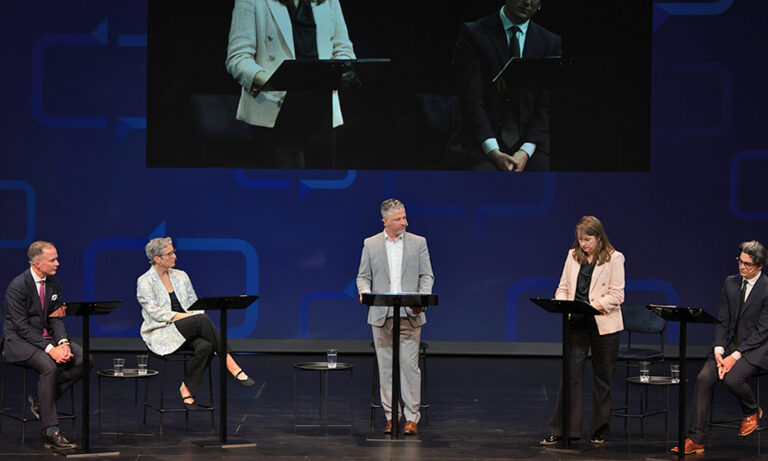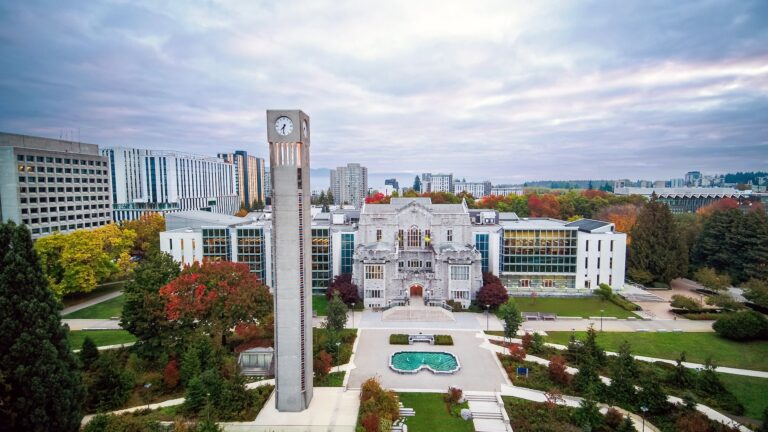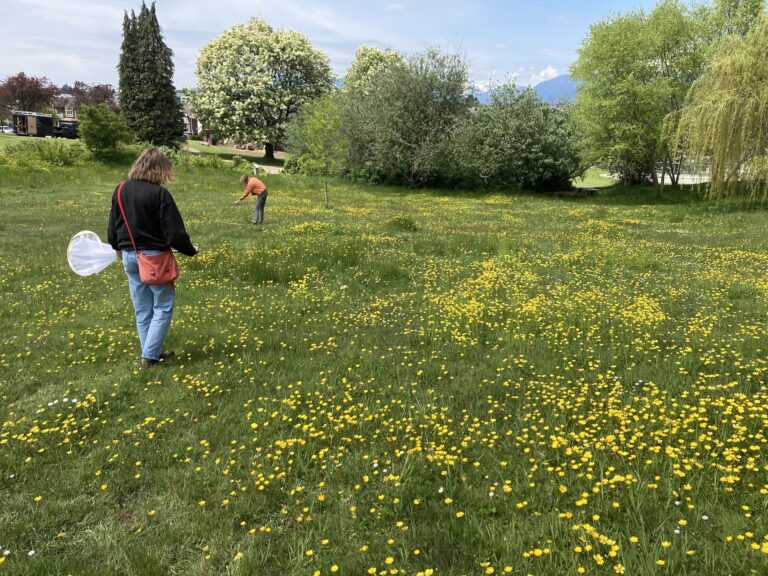UBC’s Indigenous Teacher Education Program (NITEP) celebrates its 50th anniversary
For Bailey Johnson, a Métis educator from Penticton, becoming a teacher was more than just a career choice—it was a personal mission rooted in her own experiences.
Growing up in the public school system, she saw firsthand the absence of Indigenous education and felt the impact of that gap. Motivated by the desire to make learning more inclusive and culturally meaningful, Johnson pursued her passion for teaching through UBC’s Indigenous Teacher Education Program (NITEP).
“It’s very important to have Indigenous leaders and representatives in the education system,” she said, reflecting on the vital role of incorporating Indigenous perspectives into classrooms across Canada.
Johnson’s story is one of many that have been shaped by NITEP, a program that has been fostering Indigenous leadership in education in B.C. for half a century.
NITEP launched in 1974 in response to a growing recognition that Indigenous students needed a culturally relevant approach to their education—both as learners and as future educators. The program sought to address the lack of Indigenous representation in schools, especially in remote areas, by integrating Indigenous values, knowledge and perspectives into its curriculum.
NITEP has graduated close to 500 Indigenous educators in B.C., and this year’s incoming class at UBC Vancouver welcomes 32 new students—the largest in NITEP’s history.
The program continues to play a crucial role in addressing teacher shortages, aligning with the First Peoples Principles of Learning, and fulfilling the Truth and Reconciliation Commission’s calls to action to address the ongoing impact of Canada’s residential schools—a system that was still in operation at NITEPs inception.
“Education is a key component in advancing reconciliation and decolonization,” said Dr. Jan Hare, dean of the faculty of education and former NITEP director (2016-2021). “Many of our NITEP students are motivated by their own experiences in the classroom and education system. They want to play a role in creating more welcoming, engaging and culturally relevant learning environments for the next generation of Indigenous students.”
NITEP’s regional model
Connecting with Indigenous educators closer to their home communities through regional field centres has been integral to NITEP’s approach, allowing students to stay close to their home network while completing the first few years of the program. Afterwards, aspiring educators have the option to convene with their NITEP cohort at UBC Vancouver to complete their final few years of the program.
Since the program’s inception, over 20 field centres have been established across B.C. Locations are selected strategically and jointly by representatives of Indigenous communities, UBC, and other partner post-secondary institutions and school districts.
“NITEP students and graduates are celebrated as role models in the communities they live, and many become educational leaders beyond the classroom,” said Dr. Dustin Louie, NITEP’s current director. “Anecdotally, we know that almost every Indigenous community in the province has a direct or indirect connection to UBC’s NITEP program.”
Outside of UBC Vancouver, there are now NITEP students at regional field centres in the Okanagan and at Lake Babine First Nation in northern B.C. The Newh kunik tsinilth yeh’ Field Centre in Lake Babine welcomed 38 students when it opened last year, the largest field student class in the program’s history.
Impact beyond the classroom
Mandy Na’zinek Jimmie was a member of NITEP’s second graduating class in 1979.
Since her time in the program, Jimmie has crossed paths with many other graduates who moved into positions of educational leadership in school districts, government and post-secondary education. Jimmie eventually completed a masters of linguistics at UBC Vancouver as she shifted her professional focus to Indigenous language revitalization.
In fact, the university is fortunate to call Jimmie part of the UBC community for a third time, as she is now an assistant professor in the department of community, culture and global studies, and instructs for the Nłeʔkepmx Language Fluency Program at the UBC Okanagan campus.
“As an educator, I know that creating a sense of place is so important for Indigenous student success. There is still so much work to be done in our public education systems to create a space for our voices and respective languages in our communities, and NITEP will help facilitate this important change,” said Jimmie.
NITEP in the next half century
NITEP’s future is bright as it looks toward the next 50 years.
“Our reach has expanded, and new doors are opened with increased access to online technologies and resources,” said Dr. Louie. “We are finding new pathways and reducing barriers for prospective students through enhanced community outreach and partnerships.”
“After joining the NITEP community, our students are provided with a safe place to navigate their Indigenous identity in contemporary spaces, and we provide comprehensive and dedicated support along the way.”
While the program adapts to the changing world, its core values remain the same.
Standing on the shoulders of great matriarchs, NITEP’s values in family, community and belonging remain with all who were touched by the program. NITEP graduates carry these values into their classrooms and communities, growing the program’s legacy of cultural pride and educational leadership.
Bailey Johnson now teaches at Northland Online school, which provides online education to many Indigenous children in rural northern Alberta.
Through NITEP, Johnson developed her teaching philosophy, which centres on empowering students through a focus on their identities and connections to their communities. This approach guides her work in building enriching learning experiences, particularly for students in remote areas who often feel disconnected from mainstream education systems.
“Indigenous teaching is good teaching. Indigenous educators are playing a key role in reshaping an education system that historically standardizes and depersonalizes curriculum for its students,” said Johnson. “My role as an Indigenous educator is to bridge that gap. When students see themselves reflected in the curriculum, their engagement and confidence grow.”
NITEP’s 50th anniversary provides an opportunity to celebrate the achievements of those Indigenous educators and their contributions to transforming education across Canada.
Commemorative events and programming will be held throughout the year. Visit here to learn more about the anniversary, and to read more NITEP stories.
